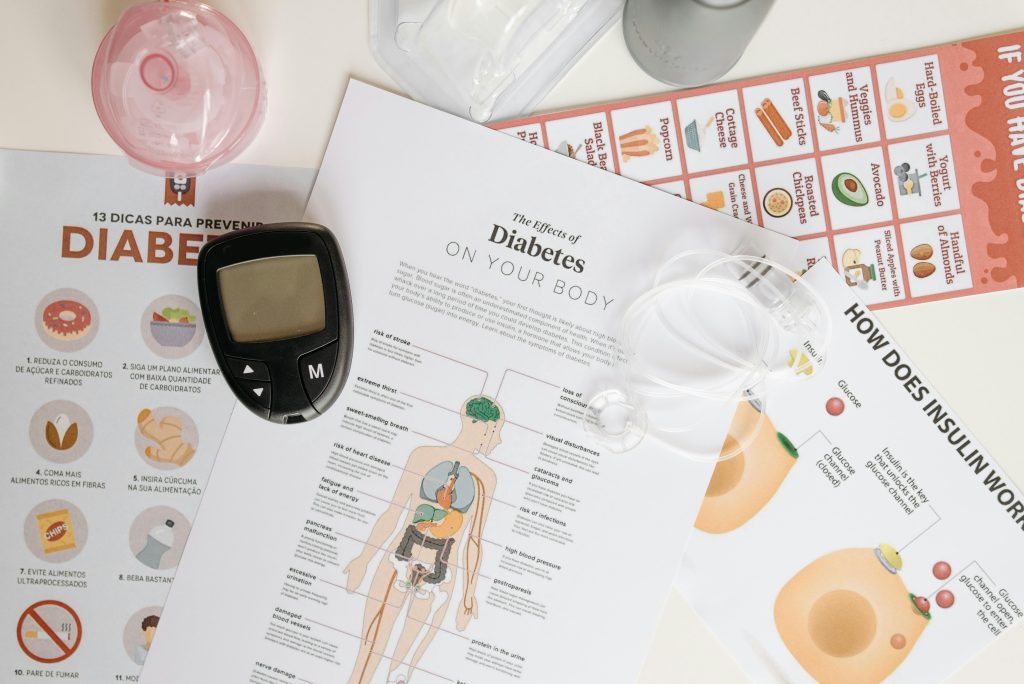Health Information Management: 20 Revolutionary Health & Fitness Facts That Will Transform Your Life Forever

In today’s fast-paced world, millions of people struggle with maintaining optimal health while juggling demanding schedules, processed food temptations, and sedentary lifestyles. The overwhelming amount of conflicting health advice available online often leaves individuals confused and frustrated, unable to distinguish between scientific facts and marketing myths. This comprehensive guide presents 20 evidence-based health and fitness facts that will revolutionize your approach to wellness, supported by cutting-edge research and effective health information management strategies. Modern health information management systems have become essential tools for anyone serious about achieving lasting wellness improvements and maintaining accountability in their health journey.

The Critical Problem: Why Traditional Health Approaches Fail
Before diving into our transformative facts, it’s essential to understand why conventional health advice often falls short. Most people fail to achieve lasting health improvements because they lack access to properly organized, scientifically-backed information. Poor health information management leads to inconsistent habits, unrealistic expectations, and ultimately, abandonment of healthy lifestyle changes. Without systematic health information management approaches, individuals often struggle to track progress, identify patterns, and make data-driven adjustments to their wellness strategies.
Research indicates that 95% of diets fail within five years, and over 80% of gym memberships go unused after the first quarter. This isn’t due to lack of willpower – it’s because people don’t have access to the right information at the right time, presented in an actionable format. Effective health information management becomes the cornerstone of sustainable wellness transformation, bridging the gap between knowledge and consistent application through systematic tracking and analysis.
20 Life-Changing Health & Fitness Facts
Fact 1: Your Gut Microbiome Controls 80% of Your Immune System
Recent microbiome research reveals that the trillions of bacteria in your digestive system directly influence your immune response, mood regulation, and even weight management. A diverse gut microbiome, achieved through consuming 30+ different plant foods weekly, can reduce inflammation by up to 40% and improve mental health outcomes significantly. Advanced health information management platforms now integrate gut health tracking with dietary logs and symptom monitoring to optimize microbiome diversity. Professional health information management systems can identify patterns between food choices and digestive health outcomes, enabling personalized nutrition strategies.
Innovative Solution: Implement a “rainbow eating” strategy where you consume foods of different colors daily. This simple approach ensures microbiome diversity without complicated meal planning. Effective health information management includes documenting your daily plant food variety to ensure you’re meeting the 30+ different foods weekly target.
Fact 2: High-Intensity Interval Training (HIIT) Produces Results in 12 Minutes
Traditional cardio workouts requiring 45-60 minutes can be replaced with scientifically-designed 12-minute HIIT sessions that deliver superior results. Studies show that 12 minutes of high-intensity training produces the same cardiovascular benefits as 45 minutes of moderate exercise. Modern health information management systems excel at tracking HIIT performance metrics including heart rate zones, recovery intervals, and power output to maximize training efficiency.
Effective health information management involves tracking these short, intense sessions using fitness apps or wearable devices that monitor heart rate variability and recovery metrics. This data-driven approach ensures optimal training intensity and prevents overtraining through intelligent health information management protocols.
Fact 3: Sleep Quality Matters More Than Sleep Quantity
While eight hours of sleep remains the gold standard, research demonstrates that sleep quality – specifically deep sleep phases – determines metabolic health, cognitive function, and longevity more than total sleep duration. Poor sleep quality can increase obesity risk by 55% and diabetes risk by 28%. Advanced health information management systems now integrate sleep tracking data with other health metrics to provide comprehensive wellness insights.
Fact 4: Strength Training Reverses Aging at the Cellular Level
Resistance training doesn’t just build muscle – it reverses cellular aging by improving mitochondrial function and increasing telomere length. Adults who engage in regular strength training have cellular ages 20-30 years younger than sedentary individuals. Sophisticated health information management platforms can now correlate strength training variables with biomarkers of aging, creating personalized anti-aging protocols. This represents the cutting edge of health information management applications in longevity research.
Revolutionary Nutritional Discoveries
Fact 5: Intermittent Fasting Optimizes Cellular Repair Mechanisms
Time-restricted eating triggers autophagy – your body’s cellular cleaning process – which removes damaged proteins and organelles. This biological housekeeping reduces inflammation, improves insulin sensitivity, and may extend lifespan by 15-20%. Successful health information management for intermittent fasting requires tracking eating windows, hunger levels, and energy patterns to optimize your personal fasting protocol.
Fact 6: Protein Timing Maximizes Muscle Protein Synthesis
Consuming 20-25 grams of high-quality protein every 3-4 hours optimizes muscle protein synthesis better than consuming large protein meals infrequently. This approach is particularly crucial for adults over 40, who experience accelerated muscle loss without proper protein distribution. Strategic health information management includes tracking protein timing, amino acid profiles, and muscle protein synthesis markers to optimize anabolic responses.
Proper health information management includes using meal-tracking apps to monitor protein intake timing and distribution throughout the day. Advanced health information management systems can even predict optimal protein timing based on individual metabolic patterns and training schedules.
Fact 7: Omega-3 Fatty Acids Directly Impact Brain Structure
EPA and DHA omega-3 fatty acids increase gray matter volume in areas responsible for memory, learning, and emotional regulation. Regular omega-3 consumption can improve cognitive performance by 23% and reduce depression symptoms by 30%. Comprehensive health information management should include tracking omega-3 intake sources, dosages, and cognitive performance metrics to establish personal optimization protocols.
Fact 8: Hydration Status Affects Cognitive Performance More Than Caffeine
Even mild dehydration (2% body weight loss) impairs cognitive function, mood, and physical performance more significantly than caffeine withdrawal. Proper hydration – approximately 35ml per kilogram of body weight daily – enhances mental clarity and energy levels naturally. Smart health information management involves monitoring hydration status through urine color charts and digital water intake tracking.
Exercise Science Breakthroughs Through Advanced Health Information Management
Modern exercise science relies heavily on sophisticated health information management systems to track performance variables, optimize training loads, and prevent overtraining. These systems represent the evolution of fitness from guesswork to precision science through intelligent data analysis and pattern recognition.
Fact 9: Compound Movements Activate 600+ Muscles Simultaneously
Multi-joint exercises like squats, deadlifts, and pull-ups activate entire kinetic chains, providing superior functional strength, calorie burn, and time efficiency compared to isolation exercises. These movements improve real-world movement patterns and reduce injury risk. Effective health information management for strength training includes tracking compound movement progressions, form quality, and functional strength improvements.
Fact 10: Recovery Is When Adaptation Actually Occurs
Muscles grow and strengthen during recovery periods, not during workouts. Optimizing recovery through proper sleep, nutrition, and stress management is more important for results than workout intensity. Active recovery sessions enhance adaptation better than complete rest. Professional health information management platforms now integrate recovery metrics with training data to optimize adaptation cycles.
Fact 11: Flexibility Training Prevents 85% of Common Injuries
Regular mobility work addressing hip flexors, thoracic spine, and ankle mobility prevents the majority of exercise-related injuries. Just 10 minutes of targeted stretching daily can maintain functional range of motion throughout life. Strategic health information management for flexibility includes tracking range of motion improvements and injury prevention protocols.
Fact 12: Cold Exposure Boosts Metabolism by 300%
Controlled cold exposure through cold showers, ice baths, or cryotherapy increases brown fat activation and metabolic rate. Regular cold exposure can increase daily calorie burn by 200-400 calories and improve insulin sensitivity. Advanced health information management systems can track cold exposure protocols and correlate them with metabolic improvements and energy expenditure data.
Mental Health and Performance Optimization
Fact 13: Meditation Physically Changes Brain Structure
Eight weeks of consistent meditation practice increases cortical thickness in areas associated with attention and sensory processing while reducing amygdala reactivity. These structural changes improve stress resilience and emotional regulation permanently. Comprehensive health information management platforms now integrate meditation tracking with neuroplasticity markers and cognitive performance assessments.
Effective health information management includes using meditation apps that track progress and provide guided sessions tailored to individual needs and experience levels. This personalized approach represents the future of health information management in mental wellness optimization.
Fact 14: Social Connections Impact Health More Than Diet or Exercise
Strong social relationships reduce mortality risk by 50% – equivalent to quitting smoking. Loneliness creates chronic inflammation comparable to obesity and increases disease risk across all major health conditions. Holistic health information management approaches now recognize social connection as a vital health metric requiring tracking and optimization.
Fact 15: Stress Management Techniques Improve Physical Performance
Chronic stress elevates cortisol levels, impairing muscle recovery, immune function, and cognitive performance. Implementing stress-reduction strategies like deep breathing, yoga, or journaling can improve athletic performance by 15-25%. Sophisticated health information management platforms integrate stress tracking with performance metrics to identify optimal stress management interventions.
Fact 16: Sunlight Exposure Regulates Circadian Rhythms and Vitamin D Production
Natural sunlight exposure within the first hour of waking optimizes circadian rhythm regulation, improving sleep quality and hormone production. Additionally, adequate vitamin D levels (40-60 ng/mL) support immune function, bone health, and mood regulation. Modern health information management systems can correlate sunlight exposure timing with sleep quality and vitamin D status for personalized optimization.

Advanced Health Optimization Strategies
Fact 17: Blood Biomarker Tracking Prevents Disease Before Symptoms Appear
Regular monitoring of key biomarkers – including inflammatory markers, lipid profiles, and metabolic indicators – allows for proactive health interventions years before disease manifestation. This preventive approach reduces healthcare costs by 60% and improves quality of life significantly. Professional health information management platforms excel at trend analysis and predictive health modeling based on biomarker patterns.
Modern health information management systems integrate wearable device data with laboratory results, providing comprehensive health dashboards for informed decision-making. These integrated platforms represent the future of personalized healthcare optimization.
Fact 18: Breathing Techniques Directly Influence Nervous System Function
Controlled breathing practices can shift the nervous system from sympathetic (fight-or-flight) to parasympathetic (rest-and-digest) states within minutes. The 4-7-8 breathing technique reduces anxiety by 40% and improves sleep quality immediately. Effective health information management includes tracking breathing practice consistency and correlating it with stress markers and sleep quality improvements.
Fact 19: Environmental Toxin Reduction Improves Energy and Cognitive Function
Minimizing exposure to endocrine disruptors found in plastics, personal care products, and processed foods can increase energy levels by 30% and improve cognitive clarity. Simple swaps like using glass containers and natural personal care products provide immediate benefits. Comprehensive health information management should include tracking environmental exposure reduction and correlating it with energy and cognitive improvements.
Fact 20: Movement Variety Prevents Adaptation Plateaus
The human body adapts to repetitive movement patterns within 6-8 weeks, leading to plateaus in fitness improvements. Incorporating movement variety – different exercises, planes of motion, and training modalities – ensures continued progress and reduces overuse injury risk. Strategic health information management involves systematically rotating training variables and tracking adaptation patterns to prevent plateaus.
Creating Intelligent Health Information Management Systems
Success requires integrating these facts into a cohesive lifestyle approach rather than implementing isolated changes. Effective health information management involves creating interconnected systems that capture, analyze, and optimize multiple health variables simultaneously. This systematic approach transforms scattered data points into actionable wellness intelligence through advanced health information management methodologies.
Modern health information management platforms excel at:
- Tracking multiple health metrics simultaneously through integrated health information management dashboards
- Identifying patterns and correlations in your data using AI-powered health information management analytics
- Adjusting strategies based on personal response through adaptive health information management algorithms
- Setting realistic, measurable goals within comprehensive health information management frameworks
- Creating accountability systems supported by social health information management features
Technology Integration for Optimal Health Information Management Results
Modern health optimization relies on leveraging technology for data collection, analysis, and behavior modification through sophisticated health information management ecosystems. The integration of wearable devices, mobile applications, and cloud-based analytics creates unprecedented opportunities for personalized health information management solutions. These advanced health information management systems represent the cutting edge of preventive healthcare technology.
Featured Product Recommendation: The RENPHO Smart Scale for Body Composition Analysis (available on Amazon) provides comprehensive body composition data including muscle mass, body fat percentage, visceral fat, and metabolic age. This device connects to smartphone apps, enabling sophisticated health information management through trend tracking and progress visualization. The scale’s advanced analytics support evidence-based decision making and represent essential health information management infrastructure for serious wellness optimization.
This smart scale integrates with popular fitness apps and provides the quantitative data necessary for implementing many of the facts discussed in this article. Its ability to track multiple metrics simultaneously makes it an invaluable tool for comprehensive health monitoring and exemplifies modern health information management capabilities.
Building Sustainable Habits Through Health Information Management
Transformation occurs through consistent small changes rather than dramatic overhauls, supported by intelligent health information management systems that track progress and provide feedback. Focus on:
- Implementing one new fact every two weeks using health information management scheduling tools
- Tracking progress using objective metrics within integrated health information management platforms
- Celebrating small victories documented through health information management milestone tracking
- Adjusting strategies based on results analyzed by health information management algorithms
- Maintaining long-term perspective supported by health information management trend analysis
Overcoming Common Implementation Challenges
Information Overload Management
With 20 powerful facts to implement, feeling overwhelmed is natural. Effective health information management strategies include:
- Prioritizing facts based on current health status
- Creating implementation timelines
- Using technology to automate tracking
- Focusing on consistency over perfection
- Seeking professional guidance when needed
The key to successful health information management lies in starting simple and gradually building complexity as systems become habitual. This systematic approach prevents information overload while ensuring steady progress toward optimal health outcomes.
Personalizing Your Approach
Individual responses to health interventions vary significantly based on genetics, lifestyle, and current health status. Successful implementation requires:
- Monitoring personal response to interventions
- Adjusting recommendations based on results
- Understanding that optimal approaches may differ
- Maintaining flexibility in strategy implementation
- Regular reassessment and optimization
Personalized health information management recognizes these individual differences and adapts accordingly, making it superior to one-size-fits-all approaches. This personalization is where modern health information management systems truly excel.
The Science Behind Lasting Change
Neuroplasticity and Habit Formation
Understanding how the brain adapts to new behaviors is crucial for lasting change. Neuroplasticity research shows that consistent practice over 66 days creates automatic behavior patterns. This knowledge informs strategic health information management by focusing on:
- Gradual implementation rather than dramatic changes
- Consistent daily practice
- Environmental modifications supporting new behaviors
- Reward systems reinforcing positive changes
- Social support for accountability
Neuroscience-based health information management leverages these insights to design behavior change programs with higher success rates and better long-term adherence.
Biomarker-Driven Optimization
Advanced health optimization relies on objective measurement rather than subjective feelings. Key biomarkers to monitor include:
- Inflammatory markers (CRP, IL-6)
- Metabolic indicators (HbA1c, insulin sensitivity)
- Hormonal profiles (cortisol, testosterone, thyroid)
- Cardiovascular markers (lipid profiles, blood pressure)
- Body composition changes
Regular biomarker assessment enables data-driven decisions about which interventions produce the most significant improvements in your unique physiology. This scientific approach represents the pinnacle of evidence-based health information management and separates amateur from professional health optimization strategies.
Long-term Success Strategies
Creating Your Personal Health Dashboard
Effective health management for your personal health dashboard should include:
- Wearable device metrics (sleep, activity, heart rate variability) integrated through health management APIs
- Nutrition tracking data processed by intelligent health management systems
- Strength and fitness progress monitored via advanced health management platforms
- Biomarker trends analyzed through predictive health management algorithms
- Subjective wellness ratings captured by health management mood tracking tools
- Environmental factor tracking through comprehensive health management monitoring systems
Building a Support Network Enhanced by Health Information Management
Health transformation is most successful when supported by like-minded individuals and facilitated by health management systems that enable community engagement and accountability. Consider:
- Joining fitness communities aligned with your goals and equipped with health management tools
- Working with qualified health professionals who utilize advanced health management platforms
- Finding accountability partners through health management social features
- Sharing progress with supportive friends and family via health management sharing capabilities
- Participating in online communities focused on evidence-based health supported by health management analytics

Conclusion: Your Health Transformation Journey Begins Now
These 20 revolutionary health and fitness facts provide the foundation for transforming your life through science-based interventions. Success requires moving beyond information consumption to consistent implementation, supported by effective health management systems that track progress and optimize approaches based on personal response. The integration of advanced health management technologies with evidence-based wellness strategies creates unprecedented opportunities for health optimization.
The path to optimal health isn’t about perfection – it’s about consistent application of proven strategies, regular assessment of progress, and continuous optimization based on results. By implementing these evidence-based facts systematically, supported by robust health management infrastructure, you’ll experience improvements in energy, performance, longevity, and overall quality of life.
Your transformation begins with the next decision you make. Choose one fact that resonates most strongly with your current situation, implement it consistently for two weeks, track your results, and then add the next intervention. This methodical approach, supported by proper health management, will compound into remarkable improvements that truly change your life forever.
Remember, the most sophisticated health strategy is worthless without consistent implementation. Start today, stay consistent, and prepare to experience the transformative power of evidence-based health optimization powered by intelligent health management systems. The future of personal wellness lies in the seamless integration of scientific knowledge with smart tracking and analysis capabilities.

